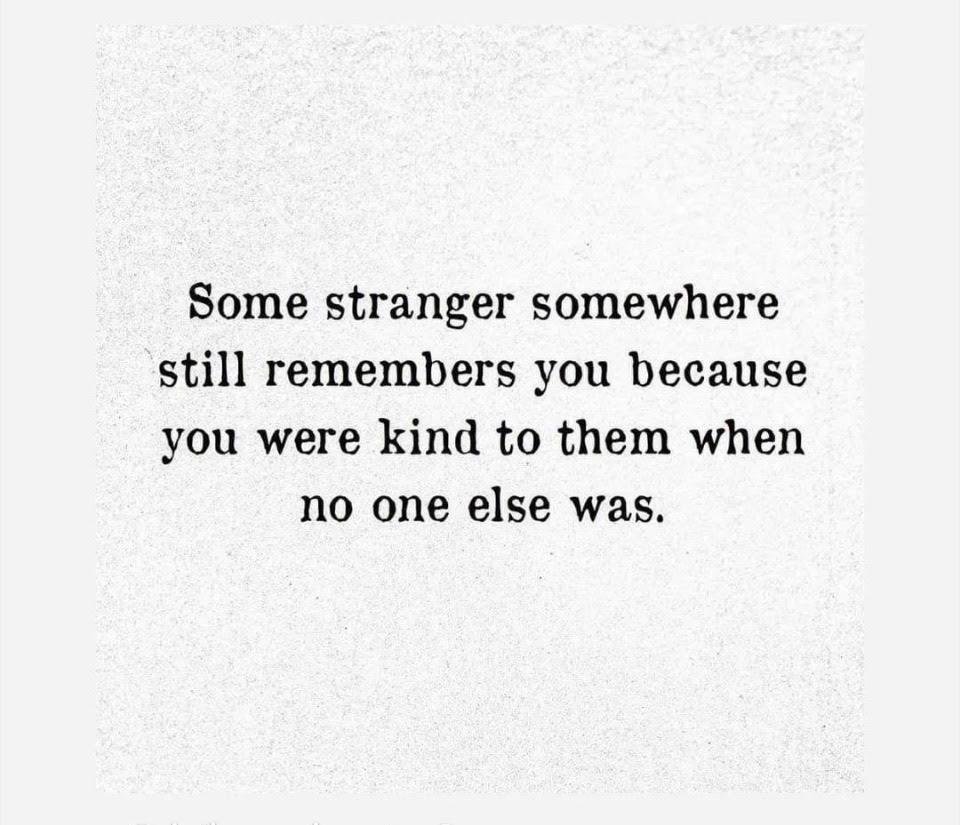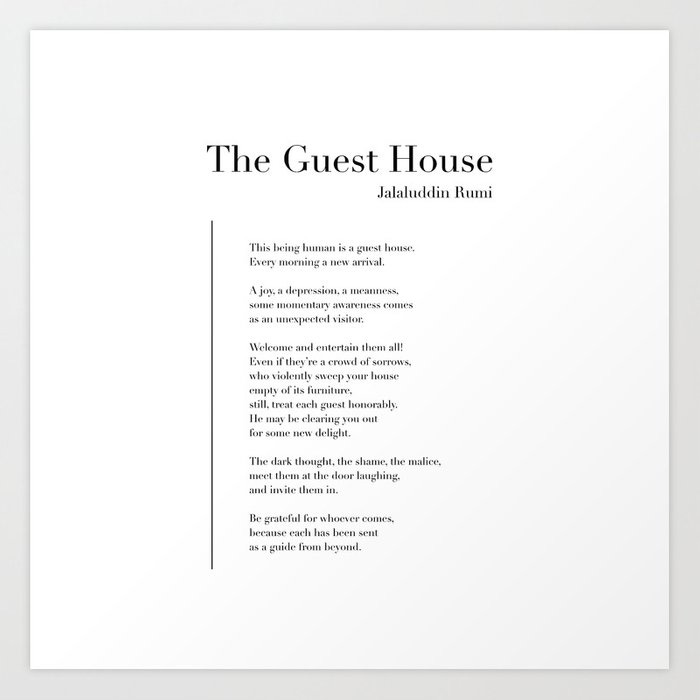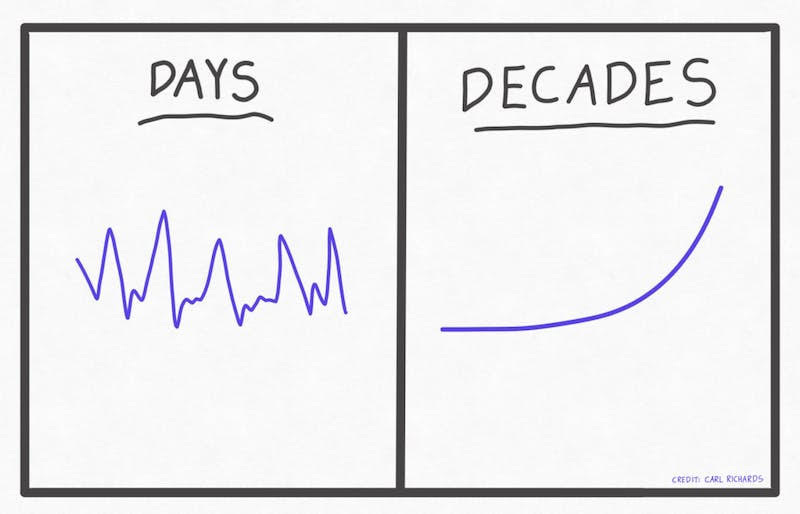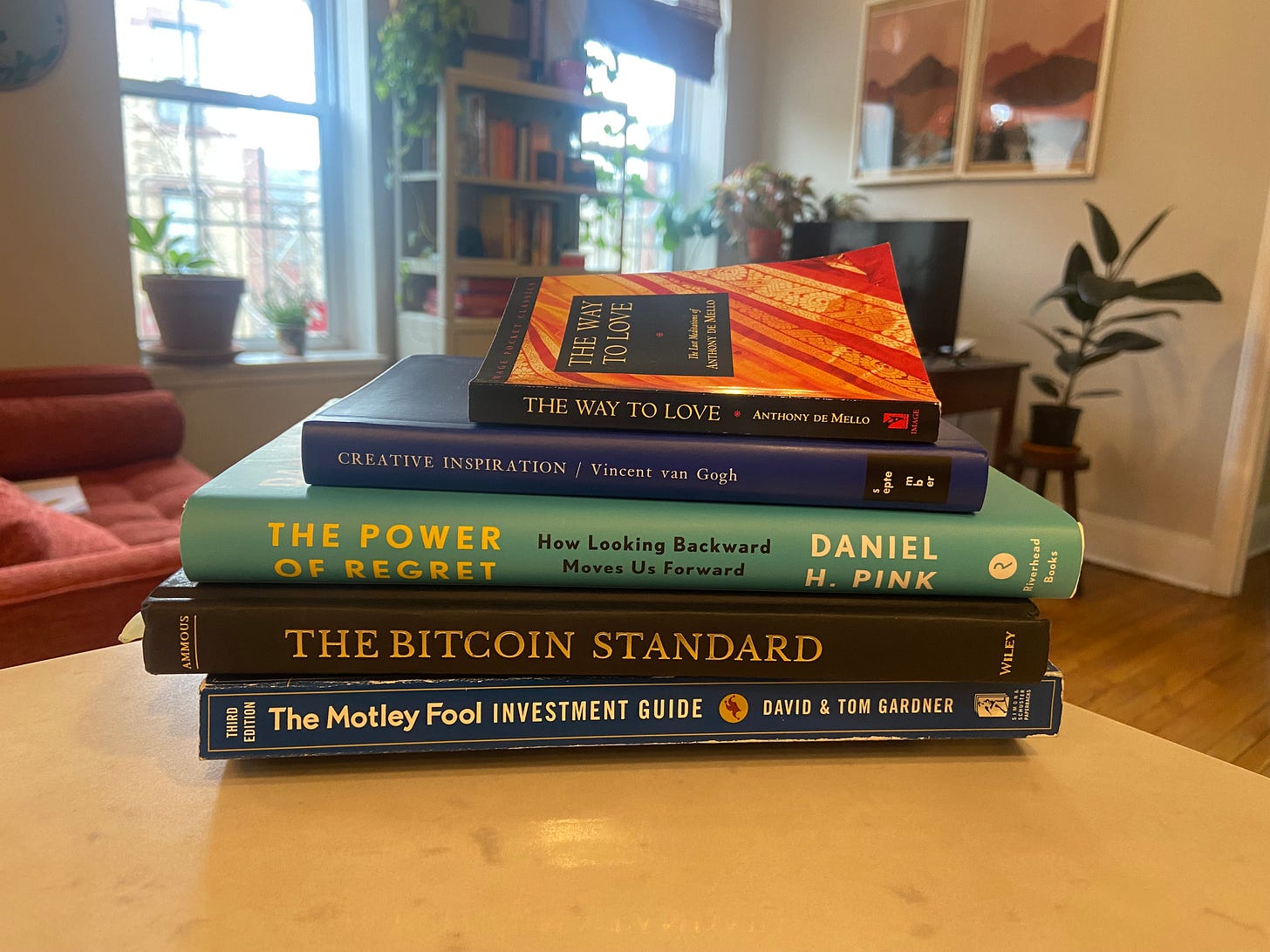On helping others through difficult times
Plus: Eight things I learned this week
Hi friends,
How can we be supportive of others, especially those who've encountered a loss, rejection or other challenge?
The other day, NYT's Tara Parker-Pope wrote on the subject, which got me thinking about the last couple of years, a period during which a number of my friends and family members have dealt with significant challenges: health, death, rejection, relationship troubles, etc. For me, they were my first real times as a caregiver or supporter. And as I reflected on my role as an observer/helper, I came away with a few conclusions. Sometimes, I think I was supportive. Other times, maybe I texted too much, or asked a few too many questions. For many of us, supporting others can be a tricky road to navigate. Plus, they don’t teach you any of this stuff in school.
Here's some of what I jotted down in my journal:
Calling a loved one or friend in a tough time can be emotional for them and not ideal. Some people find phone calls therapeutic. Others find them intrusive and time consuming. One person I have tried to support said phone calls simply eat up too much emotional energy and make her upset. For the most part, I've scaled back calling others. However, what if they call me? Or they say they want to talk? I'll pick up the phone right away. But the ball is in their court.
Texts are smart because they can be read/responded to at the recipient's convenience. Text messages can be burdensome in large numbers, but they allow the recipient to control the pace of the conservation.
I used to ask questions in texts: How are you? How can I help? How is so and so? But Parker-Pope pointed out this week that maybe question-asking isn't the best approach. Rather than ask questions — which could put pressure on the recipient to take time to respond — simply go with something to the effect of, 'Thinking of you. Here for you. No need to respond to this, just letting you know I'm here if you need something or someone to talk to.'
Mailbox. Because I'm an old soul, I love putting pen to paper and writing handwritten notes to loved ones, friends and people I've interviewed for stories. I also enjoy sending postcards and books. My mom often sends care packages. Rather than texting, calling or asking questions, sometimes the best thing to do is just send something physical, without the expectation that they need to respond. In this screen-oriented world, the mailbox stands out nicely. It’s more exciting and tangible, too.
Got any other ideas? I'd love to hear them.
Eight things I learned this week or found interesting:
Thomas Mitchell, in his ‘Essays on life,’ offers a way to “extract sweetness” from life:
“One of the best secrets of a happy life is the art of extracting comfort and sweetness from every circumstance…People are always looking for happiness at some future time and in some new thing, or some new set of circumstances, in possession of which they someday expect to find themselves. But the fact is, if happiness is not found now, where we are, and as we are, there is little chance of it ever being found. There is a great deal more happiness around us day by day than we have the sense or power to seek and find. If we are to cultivate the art of living, we should cultivate the art of extracting sweetness and comfort out of everything, as the bee goes from flower to flower in search of honey.”
Coldplay's Chris Martin on personal growth, via Rolling Stone magazine:
About a decade ago, Coldplay‘s Chris Martin was feeling “depressed and overwhelmed.” He was in the final stages of his 10-year marriage to Gwyneth Paltrow, and he felt increasingly insecure about the music he was making. “I wasn’t looking at things in a healthy way,” he says.
Then a friend gave him some books, including Man’s Search for Meaning, a memoir by psychiatrist and Holocaust survivor Viktor Frankl, and a volume by the 13th-century Persian poet Rumi. Martin says one poem, “The Guest House” — which suggests “inviting in” dark thoughts — helped him get through the period around his divorce. “It kind of changed my life,” he says. “It says that everything that happens to you is OK. The idea is to accept what happens to you and not run away from anything — and trust that things will blossom and become colorful.”
His seventh album, A Head Full of Dreams (2015), is all about his road back from anxiety and heartbreak. “It’s all true,” Martin says. “It’s about love and acceptance and embracing what happens to you."
Speaking of music, Ally and I saw Imagine Dragons on Monday night. Lead man Dan Reynolds was quite reflective between the first few songs. He polled the audience and asked if we'd lost someone special over the last few years (yes and yes), and the majority of the people's hands went up. "This is why we need each other and why we must come together," he said. "You are not alone."
Later, he added: “I hope we can all come together, be present and be in the moment. It’s a great thing."
A friend recently told me a fascinating, breakthrough way to double his efficiency, be more present, be a better friend/husband/son, and much more athletic (he hits the gym daily). The breakthrough?
"I turn my phone off for hours at a time to get my best work done and feel really alive."
Make music out of the hits you take
A beautiful metaphor in a Rilke poem can help us when times aren't ideal: “Let this darkness be a bell tower,” Rilke writes, “and you the bell. As you ring, what batters you becomes your strength. Move back and forth into the change.”
Rather than be a victim, we can turn what happens to us — a diagnosis, loss of job, loss of human life, rejection — into a strength. By turning ourselves into the bell, we make music out of the hits we take.
It's worth giving things a try
Elon Musk tweeted this week that he had lunch with Charlie Munger in 2009, and Munger told the table the ways in which Tesla would fail. "Made me quite sad," Musk recalled, "but I told him I agreed with all those reasons and that we would probably die, but it was worth trying anyway."
Center life on the 8th wonder of the world
Albert Einstein once described compound interest as the “eighth wonder of the world,” saying, “he who understands it, earns it; he who doesn't, pays for it.”
It doesn't apply only to the stock market. Relationships, careers, passions — all of it benefits from the power of compounding and a long-term mindset.
Ryan Holiday's daily routine is worth stealing from
"It's all about routine for me,” Holiday writes. “So every day looks almost exactly the same for me, whether it's the weekend or it's a holiday or it's a hard-working day. I wake up early, I don't use the phone for the first 30, 40, 50 minutes I’m awake. I do my big creative task first. I spend some time with a journal. And I only have three things scheduled in my calendar every day. No more tasks are allowed to be scheduled in the calendar. Then I do some form of hard strenuous exercise. I try to be done with work and at home with my family by five at the absolute latest. We do dinner with the family every day, bath time with the kids every day, and I read my kids to sleep every day. And that's the perfect day.”
What I’m reading right now:
Photos of the week: First, UBS Arena for Imagine Dragons, 2/14/22. Singer Dan Reynolds asked us all to leave work, politics and all the other stuff at the door...and just be there, alive, enjoying the music. The other photo is the Starbucks Reserve Roastery in NYC, which is incredible. Like music, coffee shops are fantastic places to be creative and gather with others to share stories and ideas.
One big question: What stories or beliefs do I need to let go of to live more liberated?
Be joyful and celebrate your gifts,
Matthew






